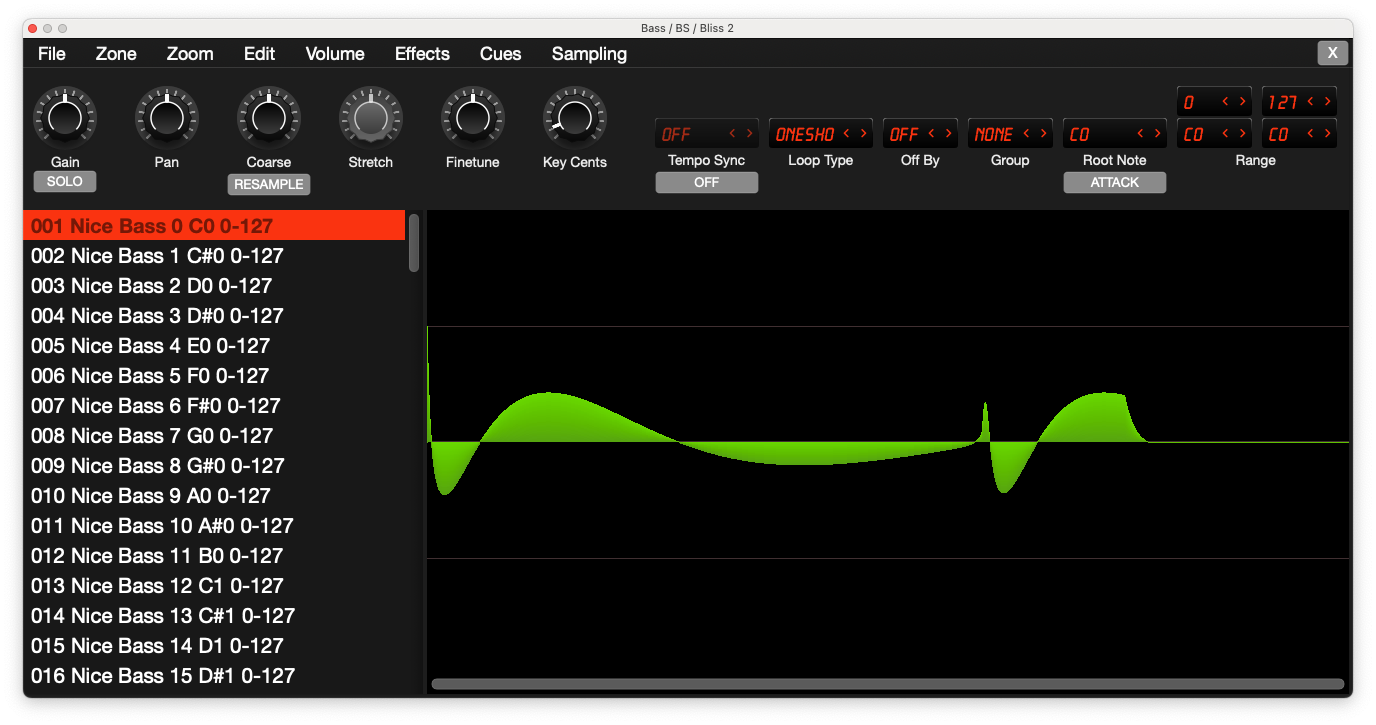Posts
5046Following
330Followers
504OpenPGP: 3AB05486C7752FE1
Jarkko Sakkinen
jarkkonot sure what to think about the next obvious step other than it is inevitably the next step :-)
so to scope the "problem" with the current AI is that it is not an "artist" using its own imagination, it is an "entertainer" following the patterns known to work for most.
Jarkko Sakkinen
jarkkoThe benefit in it is that if I write anything with reStructuredText it is easy to port as kernel documentation later on. #python
Jarkko Sakkinen
jarkkoE.g. with a bass patch for Serum I layer it with #Bitwig macro that has access to slopes through DAW interface but I cannot put it as part of preset. In Phase Plant I can have the macro within the preset.
#audio #musicproduction
Jarkko Sakkinen
jarkkoAfter couple of hours poking around I now know how to embed #typst markup from yaml to a typst document :-)
I’m working on resume made with typst (as I’m looking to find a new job by end of September), and in that I’m using #yaml file to separate presentation from the content. Job descriptions can involve links, and thus those entries need to be evaluated.
First observation was:
#eval(job.description, mode: "markup")
If mode-parameter is not defined, typst will try to parse the string as an expression (i.e. mode: "code" is the efault, which is feasible in this case.
Another problem was the use of the hash character for tags, which is used for comments in yaml.
I sorted that out by putting every description into double quotes after trying a few different approaches:
description:
"I first worked on Keystone Security Monitor for RISC-V by enabling it
for CVA6 running on FPGA. This work was part of the EU funded
#link(\"https://www.spirs-project.eu/\")[SPIRS project].
It involved
tuning the
#link(\"https://buildroot.org/\")[BuildRoot]
based embedded stack, and
fixing various
#link(\"https://github.com/keystone-enclave/keystone/issues/378\")[issues].
in the OpenSBI firmware.
For the second half of my contract I'm enabling Linux for the new SoC's
developed by
#link(\"https://sochub.fi/\")[SocHub project]."
The screenshot shows the end result.
Nothing too complicated but took some time to find working patterns so putting here as a #note for myself :-)
Jarkko Sakkinen
jarkkoJarkko Sakkinen
jarkkoI made this conclusion from: https://github.com/openSUSE/kernel-source/blob/master/scripts/linux_git.sh
But there's bunch of scripts so possibly something else needs also to be taken into account. I just thought that this is easier path to test a few patches vs using patch sequencing which would make more sense, if contributing to the downtstream kernel itself.
Jarkko Sakkinen
jarkkoJarkko Sakkinen
jarkkoI also tried to seek for the source code but it is not available here: https://git.kernel.org/pub/scm/utils
Jarkko Sakkinen
jarkkoAfter trial and error (earlier post), I’ve found out that only three steps that are required to migrate SDDM/KDE to a Wayland-only system in OpenSUSE Tumbleweed:
# systemctl disable xdm.service
# systemctl enable sddm.service
# cat > /etc/sddm.conf.d/10-display-server.conf << EOF
[General]
DisplayServer=wayland
[Wayland]
CompositorCommand=kwin_wayland --drm --no-global-shortcuts --no-lockscreen --locale1
EOF
End result:
$ pstree `pidof sddm`
sddm─┬─sddm-helper───startplasma-way───{startplasma-way}
└─{sddm}
Also sanity-checked ps aux | grep -i xorg. Makes sense now that I know the steps but was pretty hard to find the correct steps because did not really know what I was doing :-) The default value for DisplayServer is x11 and then default value for CompositorCommand is weston. Thus both need to be updated.
Jarkko Sakkinen
jarkkoDo not understand this:
$ pstree `pidof sddm`
sddm─┬─Xorg.bin───7*[{Xorg.bin}]
├─sddm-helper───startplasma-way───{startplasma-way}
└─{sddm}
I did select wayland session, do not understand what those xorg instances are for…
Jarkko Sakkinen
jarkkoit is a huge society issue in modern society really. blame something big instead of fixing the issue and call it a day.
i mean it never helps fixing the leak, even if it if the big bad venture capitalist or whatever is your dystopian monster made it possible.
Jarkko Sakkinen
jarkkoi.e. it allows to do in minutes:
key-mapped multisample along the lines of https://www.youtube.com/watch?v=bn4vPrTU9js
e.g. octave interval multisample and use multiple sample slots and instrument number to pick the octave.
if polyend published PTI specification fully then tools such as bliss could easily implement direct export for it. it would be win-win for the ecosystem and the company...
without open specs for file format it is a bit fake to use terms such as "tracker scene" in the advertisements. actually it is not a bit fake, it is fake literally.
Jarkko Sakkinen
jarkkohttps://lore.kernel.org/linux-integrity/D05LXJUT7T5Z.39FGAGHVQ6HZH@kernel.org/
Jarkko Sakkinen
jarkkoE.g. I still test new SGX features with NUC7. It is the latest and greatest in the area for open source community use.
Features like TDX and SNP are by practical means proprietary and closed features with an open source license. They do not drive any major open source projects because they are completely out of reach for the most.
I think this a real shame. E.g. I could find a lot of use for running local daemons sealed with such extra layer of protection.

